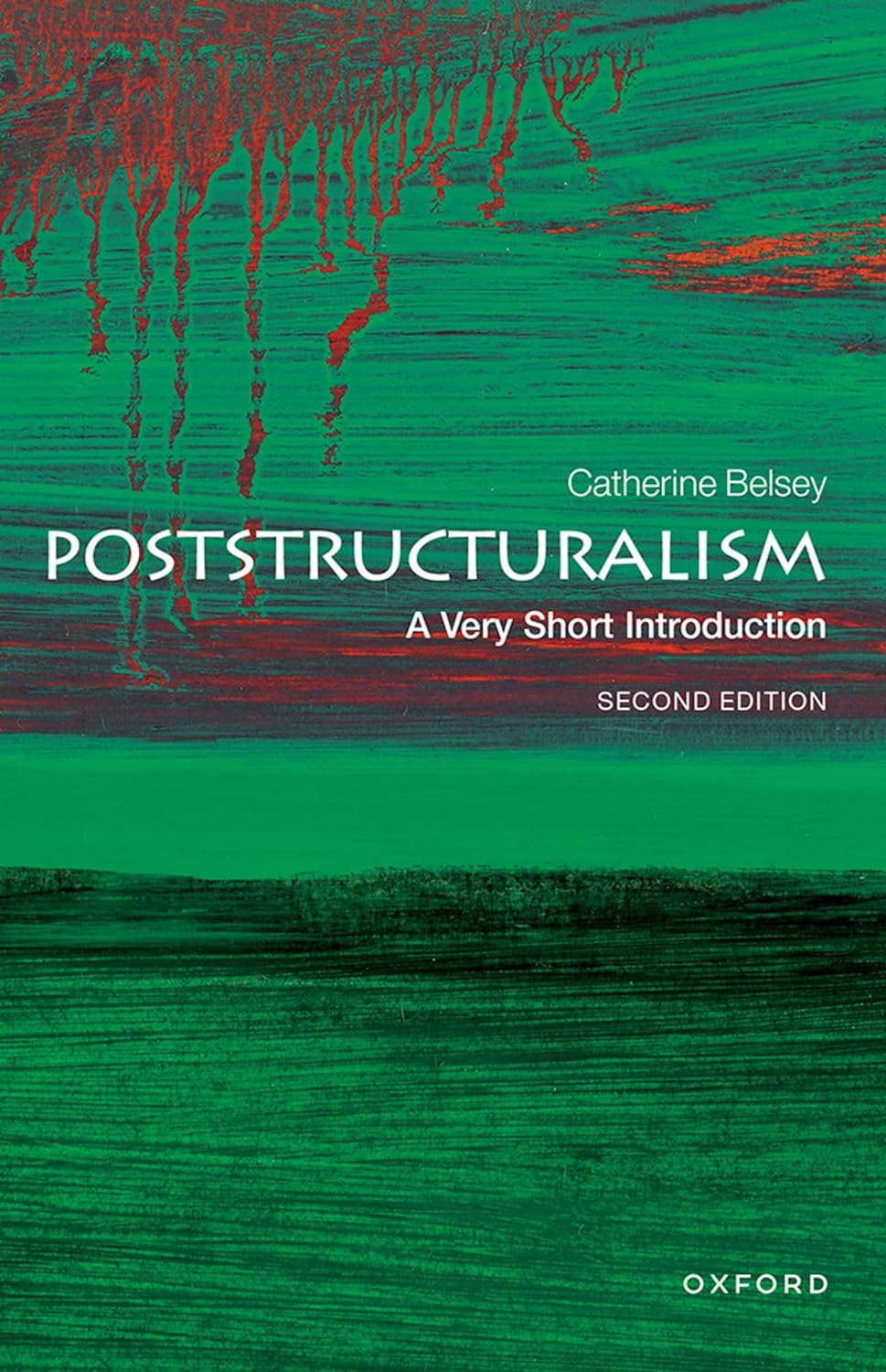Review: Poststructuralism – A Very Short Introduction

To the best of my knowledge, I had never heard the term ‘poststructuralism’ until I came across this book. But I often find myself drawn to all things post- as they are often at the forefront of attempting to discern and describe the changes of our cultural moment.
So what is this all about? In Catherine’s words:
Poststructuralism groups a number of disparate theories concerning the relationship between human beings, the world, and the practice of making, reproducing, and challenging meanings.
So, as it turns out, the topic of poststructuralism is right up my alley. And so that proved to be the case upon reading this book. While I have yet to read anything else on the subject with which to compare, I felt this was a very good introduction to a complex topic for someone unacquainted with it.
The book largely explores the concepts of language, words, truth, and how we communicate. I found it quite fascinating, though I suspect there’s a rather niche target audience for this kind of book. But the exploration of how we derive and communicate meaning through words, symbols and signifiers was very interesting. It certainly provides a perspective to understanding meaning and communication that I wasn’t so familiar with. And as someone who works in a field where words, symbols and meaning-making are very central, the new perspective was much appreciated.
As with most things prefixed with post-, it involves a large dose of deconstructing existing modes and beliefs, descending into a more chaotic “we can’t really know what anything means” kind of vibe. In my own words, I would now describe poststructuralism as the narrow field of applying the broader philosophy of post-modernism into the specifics of language, meaning and interpretation.
I think it offers an approach to understanding some of the movements in our cultural moment, and the slow descent towards chaos that has been gathering pace in the past decade.
Who wrote it
Catherine Belsey was a life-long academic in the UK. She sadly passed away in 2021 while making the final changes to the second edition of this book.
Why I read it
I have read a few other books in this series (there are many!), and found them useful introductions. I can’t recall how I stumbled upon this, but I am glad I did.
What I liked
It was fascinating, and clearly written by an English Professor. I feel smarter for having read it.
There’s a lot of good illustrations through the book (both words and images) that help to keep up with what she is discussing.
What I didn’t
There were points in the book where I felt a little lost, and it didn’t quite follow. It’s possible that is more due to the subject matter, than to the book. Catherine certainly attempts to cover a lot of grounds, and this is very much a multi-disciplinary kind of book (which I can only presume is true of the topic itself).
Major Takeaway
Everything is meaningless – especially words.
Who should read it
If your interest is in literature, words, meaning, or philosophy, this might be of interest. Or if this review has done enough to raise your curiosity.
Poststructuralism: a Very Short Introduction
To the best of my knowledge, I had never heard the term 'poststructuralism' until I came across this book. But I often find myself drawn to all things post- as they are often at the forefront of ...
